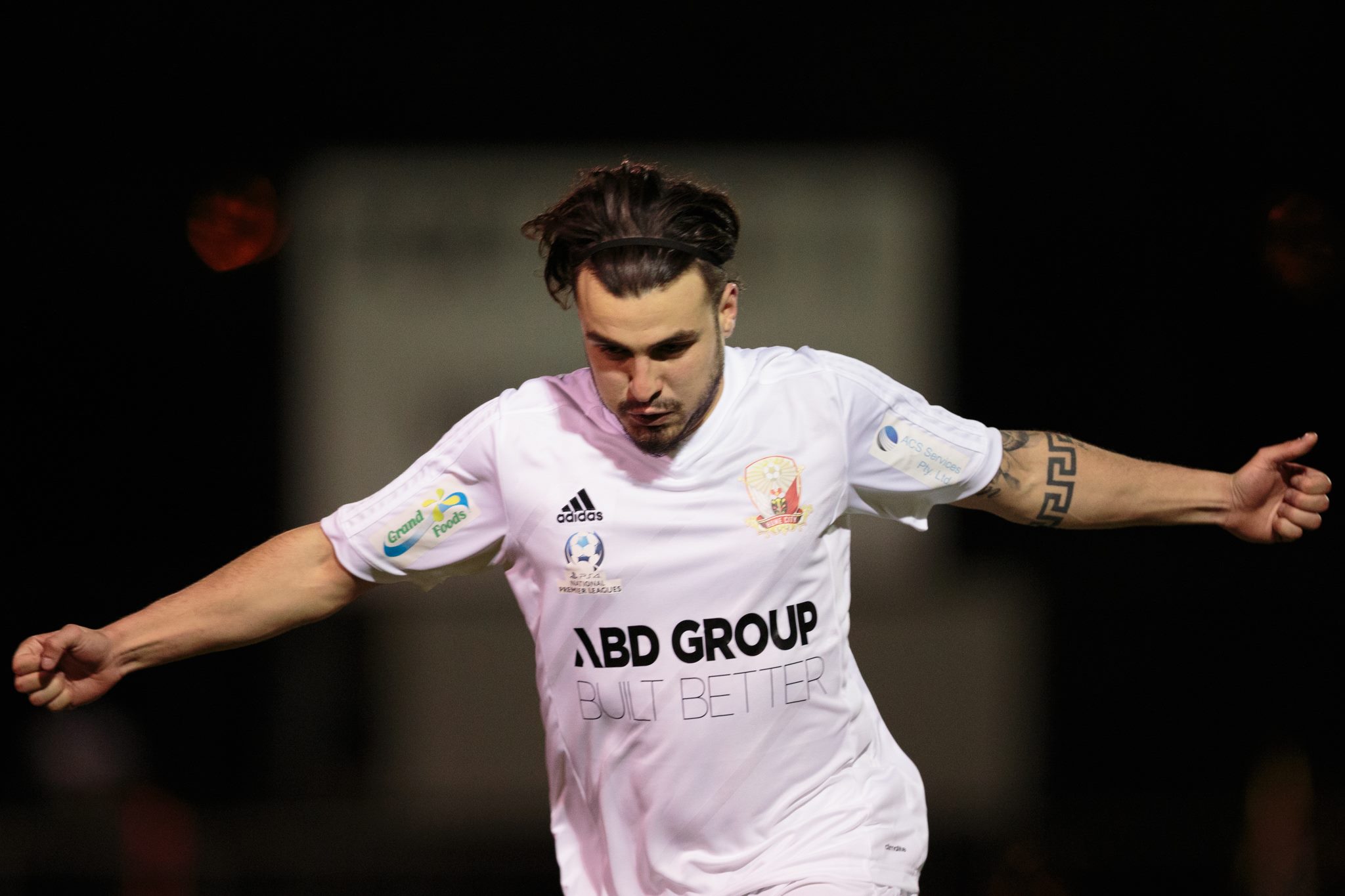Last month, a jubilant Theo Markelis was rejoicing in Hume City’s extra time FFA Cup triumph over Oakleigh Cannons to progress to the semi-final of the competition.
Some 20 kilometres away, Melbourne Victory’s celebrations were muted after their win over Adelaide, with fears a late challenge by Michael Marrone on Archie Thompson may have ended the veteran’s career. Scans later cleared him of an ACL injury, but he’s currently weeks into a recovery that may last up to three months.
As Markelis prepares to prove a point against his former employers, there’s an underlying feeling that his potential could have eventually seen him succeed the 37-year-old in Victory’s starting XI, and that even today, if the club opted to sign a short-term injury replacement for Thompson, his form could have warranted a short-term contract. He plays the same role as Thompson on the wing, and had been one of the form players throughout the NPL and FFA Cup.
This is not to say that Victory will, or should, go down that path. The ship sailed a long time ago. Fahid Ben Khalfallah and Kosta Barabrouses are the club’s established first choice wingers, while youngsters Connor Pain and George Howard are the next cabs off the rank.
Rather, it’s a reflection on what could have been for the 23-year-old, who is at an age where many players begin to hit their peak. Instead, his career trajectory has ventured the opposite way, forcing him to take a step back and build himself up again in the Victorian NPL.
As a youngster, Markelis turned out for Brunswick City and Green Gully before the opportunity arose to join Valencia’s youth team as a 15-year-old in 2007.
By the time Ange Postecoglou signed him at Victory on a two-year contract from Italian side Vicenza in 2012, the 20-year-old had forged a promising reputation. He was an Australian youth international averaging 15 goals a season at Valencia’s academy, rubbing shoulders with David Villa.
Yet one year and five substitute appearances later he was released by Victory, dogged by rumours of poor attitude. The club’s brief statement – only three lines long – implied the split was acrimonious. No glowing endorsements of his character, no words of thanks for his contribution.
Markelis himself admitted he could have approached his A-League stint with more maturity.
“I think coming back home from overseas, being with family and stuff, it’s hard to explain [but] I didn’t take it as professionally as I should have taken it,” he said.
But Markelis’ story – signed to the A-League with much fanfare after a youth career in Europe – is not unlike many Australian youths of his ilk, especially at Melbourne Victory. Julius Davies (Bayern Munich and Hoffenheim) and Francesco Stella (Siena and Glasgow Rangers) also came and went. And who could forget the plight of Kaz Patafta from Benfica?
After his release, Markelis tried – without much fortune – to forge a career in Spain with Racing Santander and Hercules, and Greece with Veria. In between, he even took time out to coach at Brunswick City in the NPL. Watching from the sidelines of suburban Victorian grounds was a far cry from the heights of Mestalla Stadium.
Sometimes it’s best to start over and take baby steps again. This season, Hume City were backing up a sixth finish in 2014 with a stuttering NPL campaign. New striker, former Cameroon youth international Calvin Mbarga, couldn’t score a league goal in half a season. Hume made the SOS and signed Markelis for more firepower up front. It was a move that could have backfired spectacularly. If he couldn’t make an impact at this level, what was left for the former youth star?
In the end, the move paid dividends for both parties. Markelis netted eight league goals in just 16 starts as Hume City fell one game short of a Grand Final appearance, scoring another five during his side’s FFA Cup run. It’s not surprising the forward’s best form coincided with a prolonged run of first team football, finally showing his quality on the ball and goalscoring nous after years of promise. He’s once more built the foundations to return to a full-time environment.
“Since I’ve grown up, as a kid that’s all I wanted to do, play professional football,” he said.
“I’m not working. I literally train every day… three times a week with Hume and the other two days I have a personal trainer that I train with.
“I’m doing that because I think if I get to do a job or something like that I’ll lose motivation in my profession which I love to do.”
Tonight marks Markelis’ best chance to be noticed on the national stage again. The odds are stacked against him given that Hume City’s last competitive game was in September, but in his road to redemption, these are the opportunities he must grasp to prove prospective employers he’s capable of making it to the top again.

